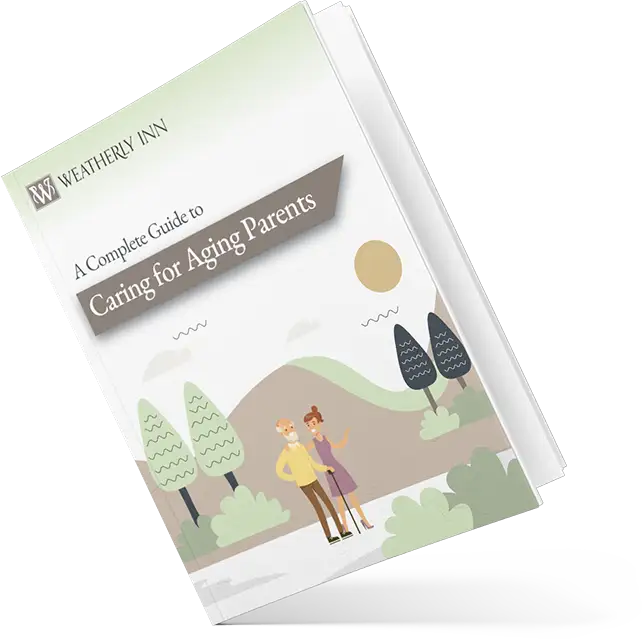August 12, 2024
Choosing the best care for an elderly loved one can have long-lasting impacts on your family’s well-being, and each option has its pros and cons. Deciding between assisted living vs. home care is significant, affecting everyone’s quality of life.
So today, we will help you navigate these choices by highlighting the benefits of each option. Our family members deserve to enjoy their later years, recognizing the effort it took to get there. Supporting your family members as they age doesn’t need to be daunting once you’re equipped with the knowledge to make the best choice for your unique situation.
Understanding the Difference: Assisted Living vs. Home Care
Regarding senior care, there are primarily two options: assisted living and home care. Each has its own set of benefits and considerations. First, let’s define them according to the National Institute on Aging:
Assisted Living: Assisted living facilities provide a community-based environment where seniors can live independently while receiving support with daily activities such as bathing, dressing, and medication management. These facilities often offer social activities, meals, and housekeeping services, creating a vibrant and engaging atmosphere for residents.
Home Care: Home care involves professional caregivers coming to the senior’s home to provide personalized care. Depending on the individual’s needs, this can range from help with daily activities to medical care. Home care allows seniors to stay in their familiar surroundings but might lack the social interaction and comprehensive support found in assisted living facilities.
Assisted Living vs. Home Care: Key Factors to Consider
|
Factor |
Assisted Living |
Home Care |
|
Social Interaction |
High – Community engagement and social activities |
Low – Typically limited to visits from caregivers |
|
Medical Support |
24/7 professional care available |
Variable – Depends on the schedule and expertise of the caregiver |
|
Safety |
Enhanced security with staff available around the clock |
Basic – Depends on home modifications and caregiver availability |
|
Cost |
Often more expensive but includes many services |
Variable – can be affordable in some cases, but costs add up and can quickly surpass assisted living costs |
|
Independence |
Promotes independence with support as needed |
High independence but can be isolating |
The Cost Breakdown
The cost of assisted living vs. home care is highly variable depending on the type of care needed, insurance benefits, and other factors. Assisted living facilities often have a higher upfront cost because they bundle a variety of services into a single monthly fee. This fee typically covers housing, meals, medical care, social activities, and other amenities. According to Schwennesen and Schermer (2011), the comprehensive nature of these services can lead to higher overall costs compared to home care, but it also ensures that all needs are met in a coordinated manner.
Home care, on the other hand, can be more affordable initially since it allows families to pay only for the specific services needed. However, home care costs will quickly surpass assisted living costs, especially if 24/7 care is required. The variability in cost also depends on factors such as the geographical location, the level of care needed, and whether specialized services are required. Additionally, home care might involve other indirect costs, such as home modifications to accommodate medical equipment or to improve accessibility.
Insurance benefits and public assistance programs can also influence the cost-effectiveness of either option. Some insurance plans and programs like Medicaid might cover certain aspects of assisted living or home care, making one option more financially viable than the other, depending on the individual’s situation.
Advantages of Assisted Living
Some seniors enjoy the advantage of having friends and family living close by, which might be one of the few instances in which home care makes sense. However, as our loved ones age, so do their communities and social groups. Assisted living offers several advantages that make it an attractive option for many families, including:
- Comprehensive Support: Assisted living facilities provide round-the-clock support and licensed nurses, ensuring that all resident’s needs are met promptly. This comprehensive care includes help with daily activities, medical support, and emergency response.
- Enhanced Security: With staff available 24/7, assisted living facilities offer a secure environment that significantly reduces the risk of accidents or emergencies going unnoticed.
- Community Engagement: One of the biggest benefits of assisted living is the sense of community. Residents can participate in social activities, events, and group outings, which can significantly improve their quality of life.

Community and social engagement aren’t just entertainment. Humans are made to be part of communities and live longer, happier lives when contributing to a group. A recent exploratory study found that opportunities for residents to form relationships are also critical to the health and mental well-being of individuals and the community.
Unique Offerings of Assisted Living
When researching assisted living vs. home care for your loved one, it is important to note that assisted living facilities are not just about basic care; they offer specialized programs and professional services that home care cannot match. Each one is different, so it’s important to explore each facility’s unique offerings, such as: - Specialized Programs: From memory care programs for those with dementia to fitness and wellness activities, assisted living facilities provide personalized care that caters to the diverse needs of their residents. These programs are designed to enhance the quality of life and ensure that residents receive the specific care they require.
- Round-the-Clock Professional Care: Having professional caregivers available 24/7 ensures that residents receive consistent and high-quality care. This constant availability is particularly crucial for individuals with complex health needs that require continuous monitoring and support. Nurses and caregivers become familiar faces that are part of a community as opposed to the revolving door of caregivers typically experienced in and out of hospitals or with homecare service providers.
Example
At Weatherly Inn, residents benefit from tailored care plans that include everything from daily assistance to specialized medical services. Personalized services include working with your loved one’s abilities, focusing on socialization and reminiscence. Activities such as music, exercise, pet interaction, and scenic drives provide a familiar and welcome rhythm. This holistic approach ensures that each resident’s physical, emotional, and social needs are met, providing peace of mind for families.
A Beautiful Retirement At Weatherly Inn
Choosing the right solution for elderly family members is never easy, but it doesn’t have to be scary. Assisted living vs. home care is a decision many families face, and numerous facilities exist for every unique need. While both options have their merits, assisted living often provides seniors with a more comprehensive, secure, and engaging environment. Quality senior living does not need to sacrifice style, comfort, or dignity.
Weatherly Inn is a small, locally- and family-owned senior living company providing refined yet inviting communities for seniors in Puget Sound. To learn more about how Weatherly Inn can provide the best care for your loved ones, visit our website or schedule a tour today!



